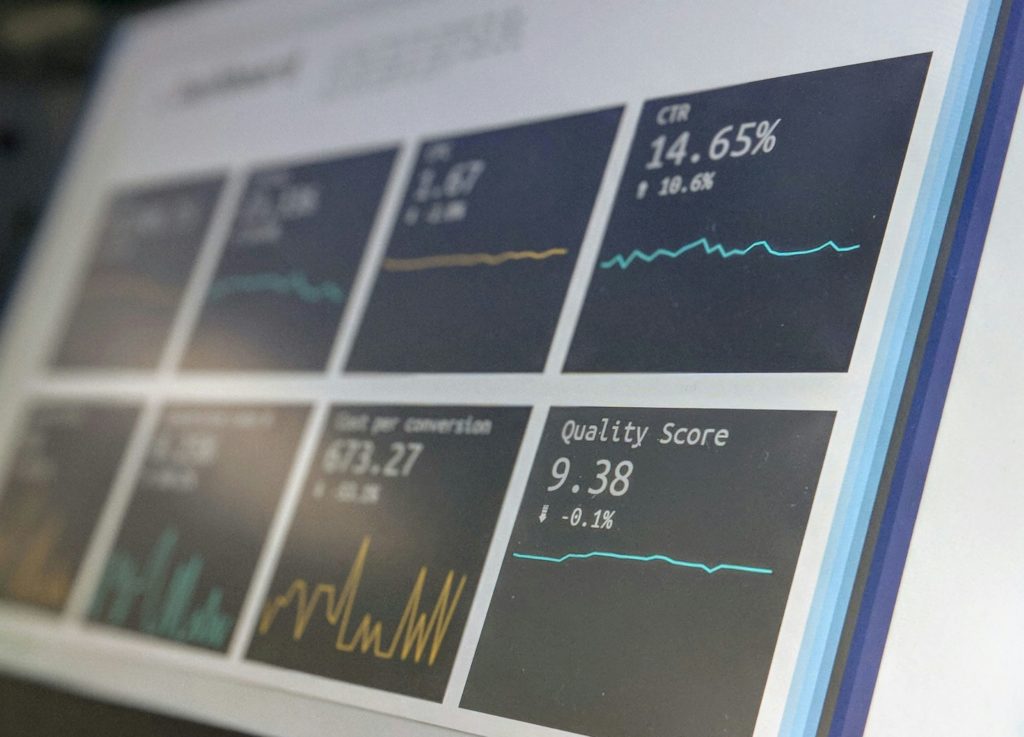DOWNLOAD The Auction Profit Blueprint
The 4 tools BIG organizations use every time to skyrocket auction profits!
The Step-By-Step Guide to stop leaving thousands on the table.
Table of Contents
ToggleExplore our guide to nonprofit analytics to get started on your journey towards better data. CharityAuctionsToday offers tips on gathering important insights.

In the nonprofit sector, the power of data cannot be overstated. With the right analytics, organizations can unlock insights that drive more effective fundraising, better program management, and overall, a more profound impact on their mission. This guide will explore the pivotal role of nonprofit analytics and how leveraging data can transform your nonprofit’s operations and donor relations.
Nonprofit analytics refers to the process of collecting, analyzing, and using data to make informed decisions and optimize the effectiveness of a nonprofit organization. It encompasses a range of activities from tracking donor behaviors to evaluating program outcomes and improving operational efficiency.
At its core, nonprofit data analytics involves examining various data points to understand trends, patterns, and relationships within your organization’s operations. Whether it’s analyzing donor demographics, campaign performance, or program effectiveness, analytics provide actionable insights that can help steer your nonprofit in the right direction.
Analytics offer a multitude of benefits for nonprofits. They enable organizations to:
Donor analytics are particularly important for nonprofits as they directly impact fundraising strategies and donor retention.
By analyzing donor data, nonprofits can identify trends and patterns in giving. This can help predict future behavior, allowing organizations to proactively adjust their outreach and engagement strategies.
Your data will show you if one-time donations are up or down compared to monthly donations. Major gifts might be common at the end of the year, but you might spot a way to solicit them at other times, too.
Segmentation is a key benefit of donor analytics. By categorizing donors based on their behavior or demographics, nonprofits can create targeted campaigns that resonate with specific groups, increasing the likelihood of donations.
Perhaps donors in a certain area are particularly interested in your cause. Or you’ve noticed that you need to invest in younger donors in the hopes that they will become lifetime donors. You can adjust your outreach strategy as needed to reach both groups.
Understanding what motivates your donors and what keeps them engaged is critical for retention. Analytics provide the insights necessary to create a more personalized donor experience, which is a significant factor in retaining supporters.
Donor data is a powerful resource for nonprofits, offering insights that help strengthen relationships, improve campaigns, and maximize impact. By understanding donor behavior, preferences, and giving patterns, nonprofits can tailor their communication strategies to engage supporters more effectively.
For instance, tracking how frequently a donor contributes or the types of campaigns they respond to allows nonprofits to send personalized appeals that resonate with individual interests and motivations. This level of customization increases donor retention and fosters long-term loyalty.
Another critical use of donor data is in campaign planning and performance analysis. Nonprofits can segment their donor database based on factors such as gift size, frequency, or geographic location. This segmentation enables organizations to create targeted fundraising strategies, such as asking major donors for large gifts while engaging smaller donors with crowdfunding campaigns.
Additionally, analyzing campaign results through donor data helps nonprofits identify successful strategies and areas for improvement, ensuring that future efforts are more impactful and cost-effective.
Donor data also plays a crucial role in measuring the organization’s overall impact and demonstrating transparency. By analyzing contributions and matching them to specific programs or outcomes, nonprofits can provide detailed reports that show supporters exactly how their gifts are being used.
Sharing this data in newsletters, annual reports, or social media updates builds trust with donors and encourages continued giving. Furthermore, donor data can help identify potential advocates or volunteers, enabling nonprofits to grow their support network beyond financial contributions.
To make the most of donor data, nonprofits must prioritize data privacy and ethical use. Implementing secure data storage systems and adhering to privacy regulations, such as GDPR or CCPA, ensures that donor trust is maintained. By leveraging donor data responsibly, nonprofits can not only achieve their fundraising goals but also deepen their relationships with supporters, ultimately driving greater social impact.
To fully leverage nonprofit analytics, organizations should adopt a structured approach. Here’s how to get started:
The first step is to ensure you’re collecting relevant and high-quality data. This includes donor information, fundraising campaign results, program metrics, and financial data. Using a well-rounded Customer Relationship Management (CRM) system, like Salesforce for nonprofits, or a specialized nonprofit database can help streamline this process.
There are several tools available that can help nonprofits analyze their data. From Google Analytics for website traffic to specialized software for donor management, the right tools can simplify the analysis and provide deeper insights.
Data often resides in different systems, such as fundraising platforms, email marketing tools, and accounting software. Integrating these sources allows for a more holistic view of your nonprofit’s performance.
To make the most of analytics, your team should understand how to interpret and use data effectively. Consider investing in training for staff members to build a data-driven culture within your organization.
While the benefits of nonprofit analytics are clear, there are challenges that organizations may face.
Poor data quality and issues with integrating disparate data systems can hinder the effectiveness of analytics. Nonprofits need to establish data governance policies and invest in integration solutions to address these challenges.
Many nonprofits operate with limited resources, which can make it difficult to invest in advanced analytics tools and training. It’s important to prioritize and start small, focusing on the most impactful metrics first.
Nonprofits must navigate the complexities of data privacy and security, especially when dealing with sensitive donor information. Adhering to best practices and regulatory requirements is essential to maintain trust and compliance.
As technology evolves, so do the opportunities for nonprofits to leverage analytics.
The use of predictive analytics and machine learning is on the rise, allowing nonprofits to anticipate trends and behaviors with greater accuracy.
Social media platforms are rich sources of data, and integrating this information with other nonprofit analytics can provide a more comprehensive view of supporter engagement.
There’s a growing emphasis on measuring the direct impact of nonprofit programs. Analytics play a crucial role in quantifying outcomes and demonstrating value to stakeholders.
Nonprofit analytics are an indispensable tool for any organization looking to maximize its impact and achieve its mission. By harnessing the power of data, nonprofits can make informed decisions that lead to more effective fundraising, stronger donor relationships, and better program delivery.
Investing in the right tools, training, and strategies can help your nonprofit navigate the complexities of data analytics and unlock the potential that lies within your data. As the sector continues to evolve, those who embrace analytics will be best positioned to thrive in the years to come.
DOWNLOAD The Auction Profit Blueprint
The 4 tools BIG organizations use every time to skyrocket auction profits!
The Step-By-Step Guide to stop leaving thousands on the table.

